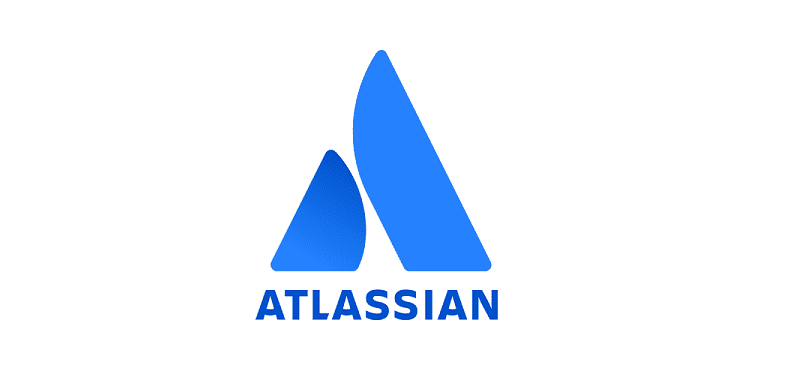Ever wondered how you can jump from blackjack to roulette in seconds without reloading your balance? That’s the magic of unified casino wallet systems, powered by clever API technology. In a world where online gaming crossed $107 billion in global revenue in 2024, efficiency is king — and APIs make that happen behind the scenes.
They act like digital translators, connecting every moving part: payment processors, games, bonus programs, and even compliance checks. Without APIs, every slot spin would require manual balance updates — not exactly fun for players in 2025.
Understanding Unified Casino Wallets
A unified casino wallet is a single digital balance that works across all casino platforms — slots, sports betting, poker, and even eSports. Before this innovation, players had to create separate accounts for each product. Imagine reloading funds five times just to play different games.
Before integration, casinos reported an average of 32% user churn due to fragmented payment systems. By 2022, over 68% of new iGaming operators switched to unified wallets powered by API connections to streamline player activity.
How APIs Power Casino Wallets
APIs — short for Application Programming Interfaces — are digital bridges that let systems communicate instantly. Think of them as the casino’s nervous system: they send, receive, and interpret financial and player data within milliseconds.
In 2023, operators reported that integrating real-time APIs cut wallet update delays from 2.7 seconds to just 0.3 seconds. That speed makes the difference between smooth gameplay and frustrated users clicking away.
Modern Casino API Integration allows different vendors — from payment providers to game studios — to sync perfectly. The result? Players can deposit once and play anywhere.
A Brief History of Casino Wallet Evolution
The first online casinos of the 2000s used separate wallets for each product. Poker rooms, sportsbooks, and bingo sites all had independent balance systems. In 2010, early innovators began experimenting with shared payment infrastructures, but integration was slow and buggy.
By 2016, only 15% of operators had partial wallet synchronization. Fast forward to 2024, and that number skyrocketed to 89%, thanks to API advancements and modular gaming platforms. The shift saved companies millions — one major brand reported $3.4 million in annual savings just from operational efficiency.
Types of APIs in Casino Wallet Development
There isn’t just one API doing the heavy lifting. Casinos rely on multiple specialized APIs:
- Payment Gateway APIs — handle deposits via Visa, Mastercard, PayPal, and crypto options like Bitcoin.
- Gaming Provider APIs — connect slot machines, table games, and live casinos to the wallet system.
- KYC APIs — verify players’ identities and comply with anti-money laundering laws.
In 2025, the average regulated casino connects with over 60 API endpoints daily — a huge jump from 15 in 2017.
Seamless Player Experience Through Integration
A good API system makes the entire gaming experience fluid. Unified wallets mean a player can win €200 in blackjack, switch to slots, and use the same balance instantly.
Casinos with API-driven wallets have 28% higher player retention rates, according to a 2023 survey by iGaming Insider. Players no longer waste time moving funds manually. And when time equals engagement, engagement equals profit.
Real-World Example: BetSync’s API Implementation in 2024
BetSync, a European iGaming company, overhauled its wallet system in May 2024. Before the upgrade, they handled 1.2 million monthly transactions across separate wallets. After integrating APIs across their ecosystem, that number rose to 1.9 million, with latency dropping by 76%.
Their player satisfaction score jumped from 72% to 93%, proving that technical efficiency directly translates into loyalty. The upgrade also cut transaction errors by 84%, showing how precision in Casino API Integration development can redefine user experience.
Cross-Platform Wallets: Desktop, Mobile, and Terminals
Gaming doesn’t just happen on desktops anymore. In 2025, around 73% of bets are placed from smartphones, and 11% from tablets or smart TVs. A unified wallet ensures that a single balance works on every device.
APIs make that flexibility possible, syncing deposits, withdrawals, and rewards instantly — even when a player switches from Android to iOS. It’s the kind of convenience that keeps people spinning the reels on the go.
Data Security and Fraud Prevention
With money constantly in motion, security becomes the foundation. APIs use TLS 1.3 encryption, tokenized credentials, and behavioral analytics to detect unusual activity.
In 2023, over $500 million worth of fraudulent gaming transactions were intercepted worldwide — most of them through systems enhanced with real-time API monitoring. The integration also ensures compliance with GDPR and PCI DSS frameworks, protecting sensitive player data.
Regulatory Standards and API Compliance
Licensing authorities such as the Malta Gaming Authority (MGA) and UK Gambling Commission (UKGC) require strict audit trails for every transaction. Unified wallet APIs automatically generate these logs, ensuring full transparency.
In 2024, operators failing to meet encryption or reporting standards faced fines averaging €750,000. Following the right API compliance protocols isn’t just smart — it’s mandatory.
Challenges in Casino Wallet Integration
Despite all the benefits, integration isn’t easy. Developers must balance latency, scalability, and data consistency. When one system fails, it can create ripple effects across dozens of platforms.
In early 2023, a single synchronization error at a Latin American casino caused $180,000 in refund claims within 48 hours. Proper load balancing and rollback systems are vital in large-scale deployments.
Performance Metrics and Monitoring
Performance defines success in casino wallet systems. KPIs like API uptime, transaction speed, and error rate determine whether a player trusts the platform.
Casinos maintaining 99.99% uptime saw user deposits rise by 22% year-over-year in 2024. Monitoring tools such as New Relic or Grafana visualize real-time wallet data, helping engineers react before problems spread.
Future Trends in API-Based Wallet Systems
Looking forward, the future of casino wallets is intertwined with AI and blockchain. Artificial intelligence already predicts player spending patterns, offering personalized promotions in milliseconds.
Meanwhile, blockchain smart contracts allow transparent fund tracking, ensuring tamper-proof transactions. Analysts estimate that by 2027, more than 65% of major casinos will adopt hybrid blockchain APIs for both speed and security.
Business Advantages for Operators
Unified casino wallets aren’t just a technical upgrade — they’re a business revolution. Operators report saving an average of 18% in annual operational costs and boosting cross-product engagement by 35%.
Additionally, shared wallets increase player lifetime value (LTV) by simplifying the experience. The less time players spend managing funds, the more they enjoy the actual games.
Conclusion
APIs have quietly become the backbone of the casino industry’s modernization. Unified wallet systems built on strong integration deliver seamless gameplay, rapid transactions, and regulatory peace of mind.
From faster payments to global reach, the connection between casino wallets and APIs defines how gaming will evolve over the next decade. In short — when APIs work perfectly, players never notice them. And that’s exactly how it should be.
FAQs
1. What is a unified casino wallet?
It’s a single account that holds your balance across multiple gaming platforms — slots, poker, sports betting, and more.
2. How do APIs help in casino wallet systems?
They connect different platforms, ensuring your balance updates instantly across all games.
3. Are unified wallets safe?
Yes. They use encrypted connections, tokenized data, and compliance frameworks like GDPR and PCI DSS.
4. What’s the benefit for casino operators?
Better retention, fewer errors, and higher profits due to seamless player experience.
5. What’s next for casino wallet APIs?
Expect blockchain integration, AI-based personalization, and faster global payments by 2027.


